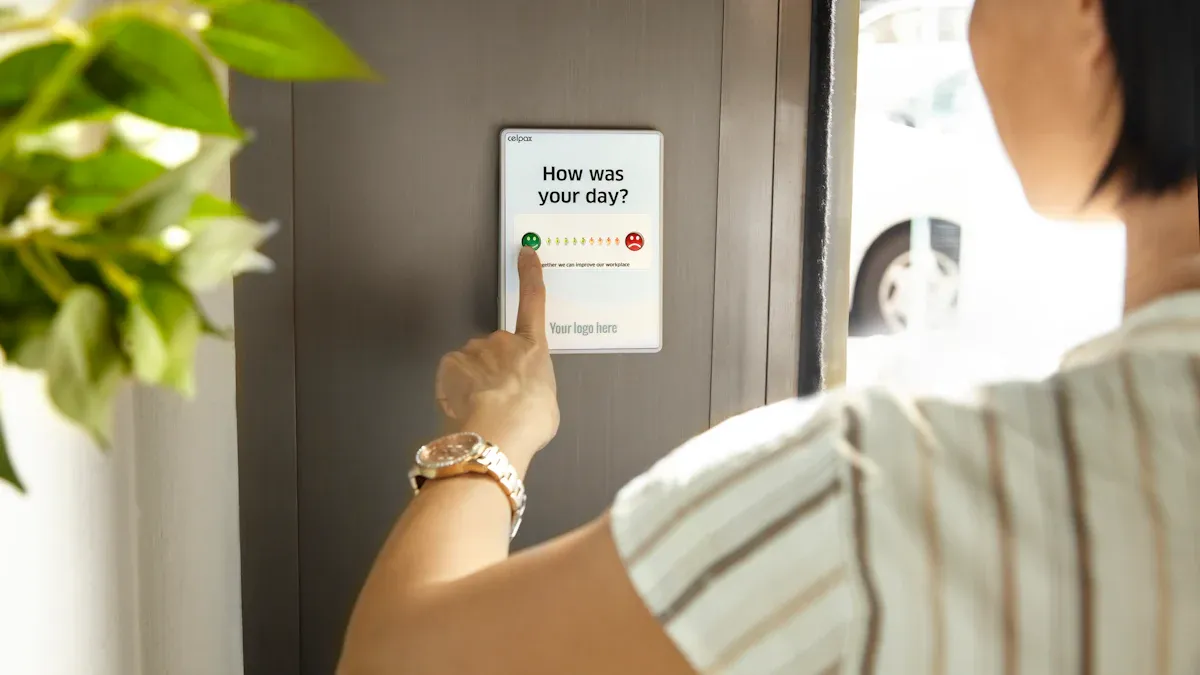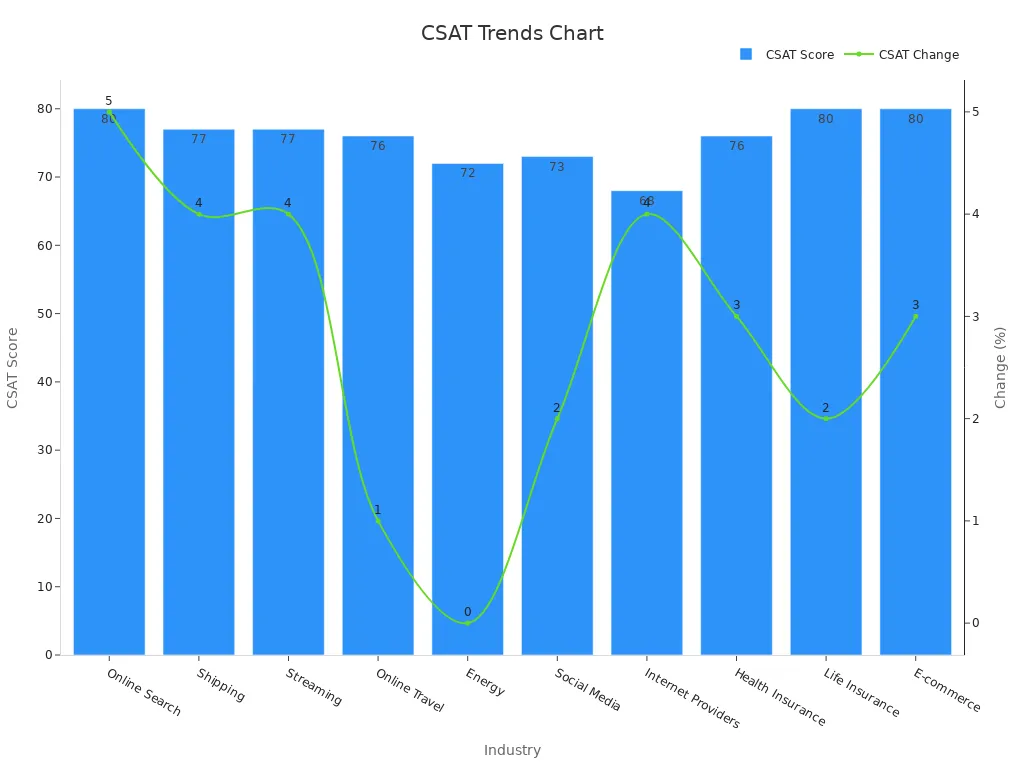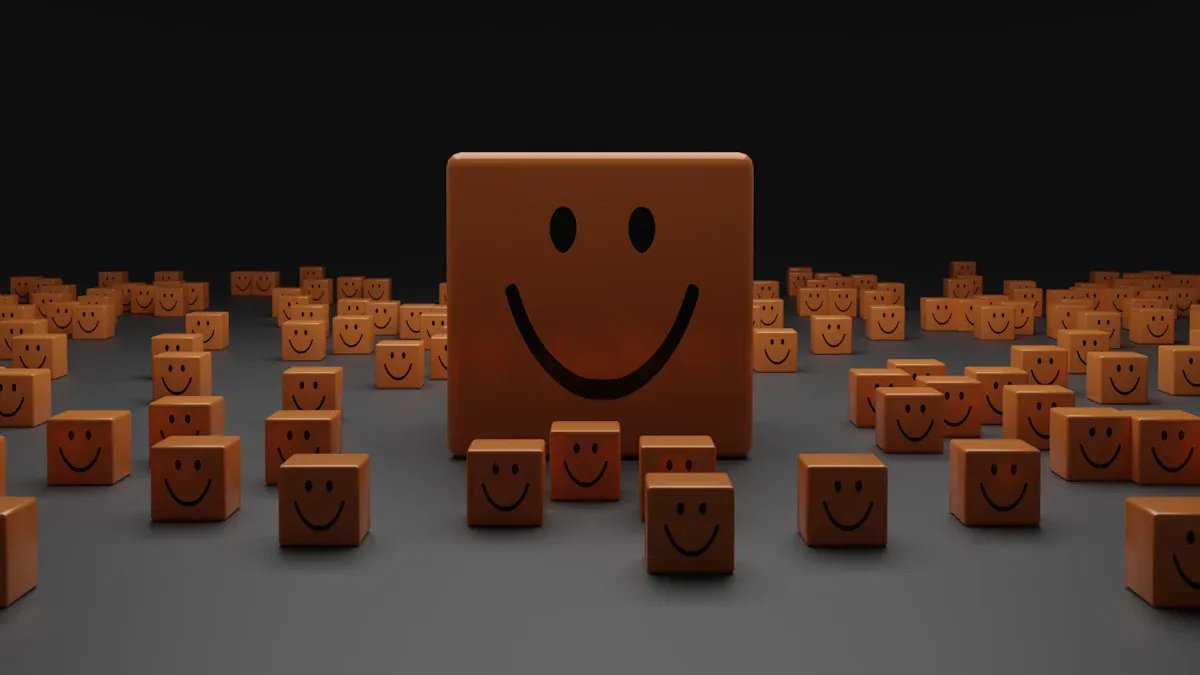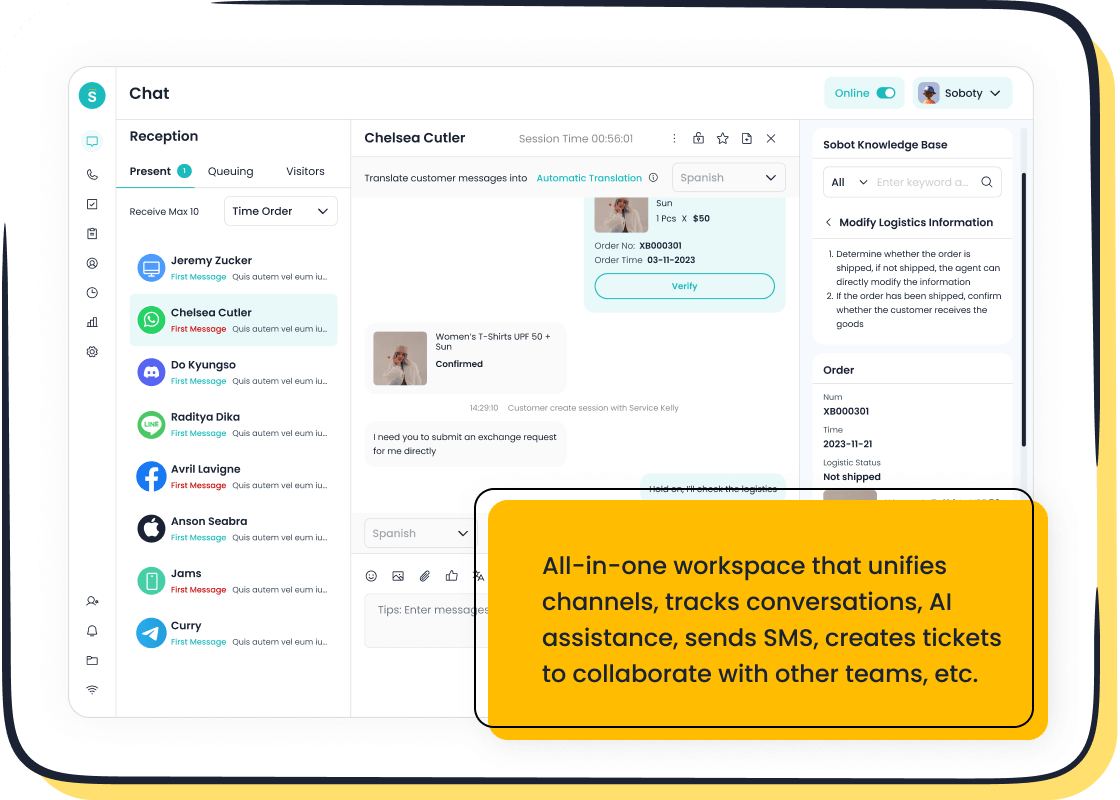How to Calculate CSAT Score Step by Step

CSAT, or Customer Satisfaction Score, tells you how happy your customers feel after an interaction. You calculate CSAT using this formula:
(Number of satisfied customers ÷ Total respondents) × 100.
When you measure CSAT, you gain insight into customer satisfaction and service quality. Many companies now use tools like Sobot Live Chat to measure customer satisfaction and improve customer experiences. Sobot AI helps you measure CSAT across all channels, making it easy to track service performance.

You can see that CSAT scores in industries like e-commerce and online search reached 80 in 2023, showing steady improvement. Learning how to calculate CSAT score helps you measure customer satisfaction, spot trends, and drive business growth.
What Is CSAT?
CSAT Score Meaning
CSAT stands for Customer Satisfaction Score. You use this customer satisfaction metric to measure how happy customers feel after they interact with your business. Companies often send a short survey right after a call, chat, or purchase. The most common survey uses a five-point scale, where 1 means "Very Satisfied" and 5 means "Very Dissatisfied." You calculate the CSAT score by finding the percentage of customers who choose the top ratings, usually 4 or 5. This score helps you see how well your team meets customer needs at key moments, like solving a problem or answering a question.
CSAT is different from other customer satisfaction metrics, such as Net Promoter Score (NPS) or Customer Effort Score (CES). While NPS measures if customers would recommend your business, and CES checks how easy it is for customers to get help, CSAT focuses on satisfaction with a specific interaction. A good CSAT score in most industries ranges from 75% to 84%. Scores above 85% show world-class service. You can use CSAT to track agent performance, improve training, and spot trends in customer experience.
Customer Satisfaction in Service
Customer satisfaction plays a big role in service industries and ecommerce. When you measure CSAT, you get direct feedback about what works and what needs fixing. High CSAT scores mean your customers are happy and likely to stay loyal. Studies show that more than 25% of customers switch brands after poor service. Regular CSAT surveys help you catch problems early and make quick changes, like retraining staff or updating policies.
Tip: Sharing CSAT results with your team encourages everyone to focus on better service.
Many companies use tools like Sobot Live Chat to collect CSAT data across all channels. Sobot’s omnichannel solution lets you see customer feedback from chat, email, and social media in one place. This makes it easier to spot patterns and improve the customer experience. Personalized service, fast responses, and easy communication all help boost customer satisfaction.
Here are some real-world examples of how measuring customer satisfaction improves results:
| Industry | Methods Used | Results Achieved |
|---|---|---|
| E-commerce | Surveys, usability testing | Higher sales, fewer abandoned carts |
| Airlines | Surveys, social feedback | Better loyalty, more satisfied travelers |
| Hospitality | Surveys, interviews | More engaged members, improved programs |
| Beauty Retail | Data analytics, in-store | Enhanced experience, increased sales |
Tracking your CSAT score helps you build a loyal customer base and grow your business. Sobot’s solutions make it simple to measure and act on customer satisfaction data, so you can keep improving every day.
CSAT Score Formula

How to Calculate CSAT Score
You can measure customer happiness with a simple csat calculation. The csat score formula is:
(Number of satisfied customers ÷ Total respondents) × 100
This formula gives you the csat score percentage. For example, if 80 out of 100 customers select a positive answer on your csat survey, your csat score is 80%. You can use this method for any customer satisfaction survey, whether you run a retail store or an online business.
To get accurate results, you need to know how to calculate csat score for each interaction. Start by collecting responses from your csat survey questions. Count the number of customers who choose the top ratings, such as "satisfied" or "very satisfied." Divide this number by the total number of survey responses. Multiply by 100 to get your csat score.
Many businesses use a csat calculator or built-in analytics tools to speed up this process. Sobot Live Chat offers built-in analytics and satisfaction surveys, so you can track csat across all your channels. This helps you spot trends and improve your service quickly.
Tip: Use a csat calculator to save time and reduce errors in your csat calculation.
Common Survey Scales
You will find different scales in csat surveys. The most common is the 1-5 scale, where 5 means "very satisfied." Some companies use a 1-7 or 1-10 scale. Each scale affects how you classify "satisfied" responses.
- Smaller scales like 1-5 cluster answers more tightly, making it easier to spot satisfied customers.
- Larger scales, such as 1-10, show more variety in responses but can make it harder to decide which scores count as "satisfied."
- Fully labeled scales (with words for each number) spread out answers, while only labeling the endpoints can push people to pick the highest or lowest score.
- The words you use, like "somewhat satisfied" or "extremely satisfied," change how people answer.
Experts suggest using a 1-5 scale with 5 as the most positive response. This keeps your csat survey simple and clear. Sobot Live Chat lets you customize your csat survey questions and scales, so you can match your business needs. You can also view all your survey results in one place, making it easy to see how to calculate csat score for every channel.
Note: The design of your csat survey impacts how customers respond and how you interpret your csat score.
Calculate CSAT Step by Step
Calculating your CSAT score does not have to be complicated. You can follow a clear, step-by-step process to measure csat and get reliable results. Here’s how to calculate csat score in your contact center or with a tool like Sobot Live Chat.
Collect Responses
Start by collecting responses from your customers. You want to gather feedback right after important moments, like after a purchase or a support chat. This helps you capture fresh and honest opinions.
- Send csat surveys immediately after key interactions, such as a completed order or resolved support ticket.
- For ongoing services, wait a few days before sending the survey so customers can fully experience your product or service.
- Match survey timing with specific points in the customer journey to improve response rates and data quality.
- Use simple questions with a clear rating scale, usually from 1 to 5.
- Collect both ratings and open-ended comments for deeper insights.
- Clean your data by removing duplicates and fixing errors.
- Segment your results by customer type or behavior to spot trends.
Tip: Sobot Live Chat lets you automate csat survey delivery and data collection across all your channels. This ensures you never miss valuable customer feedback.
Survey timing matters. Studies show that sending surveys right after an interaction gives you more accurate results. If you send too many surveys, customers may ignore them, so find a balance that works for your business. For best results, avoid weekends and busy periods when response rates drop.
Identify Satisfied Customers
Once you have your responses, you need to decide which customers count as "satisfied." Most companies use the top two ratings on a 1 to 5 scale—usually 4 ("Satisfied") and 5 ("Very Satisfied"). This method helps you focus on customers who had a truly positive experience.
- Use your past csat scores as a benchmark to track progress.
- Compare your results with industry standards to set realistic goals.
- Segment your data by department or channel to see where you excel or need improvement.
- Combine numerical ratings with open-ended feedback to understand why customers feel satisfied or not.
High csat scores often mean customers will come back, refer friends, and stay loyal. By identifying satisfied customers, you can predict future revenue and make smart decisions about where to invest in customer experience.
Apply the Formula
Now you are ready to calculate csat. Use the csat formula:
(Number of satisfied customers ÷ Total respondents) × 100
Let’s say you sent out 200 csat surveys after a week of support chats. If 160 customers gave you a 4 or 5, your csat score is:
(160 ÷ 200) × 100 = 80%
You can use a csat calculator to make this step faster and avoid mistakes. Sobot Live Chat includes a built-in csat calculator, so you can see your scores in real time and track them across different channels.
The csat calculation process stays the same, whether you are measuring satisfaction after a product purchase or a support call. Just remember to define what counts as "satisfied" for your business. In some cases, you might use positive emoticons or "Yes" answers instead of numbers.
Interpret Results
After you calculate csat, you need to make sense of the results. Look for patterns over time and compare your scores to industry benchmarks. For example, a csat score above 85% usually means excellent service, while scores between 70% and 85% are strong but may have room for improvement.
- Track your csat trends by week, month, or quarter.
- Compare your scores with competitors to see how you stack up.
- Segment your results by channel, agent, or customer type for deeper insights.
- Use your findings to train staff, improve processes, and fix common issues.
Note: Companies that follow a standardized csat calculation process see more reliable results and can make better decisions. Sobot Live Chat helps you keep your process consistent, so you can focus on improving customer satisfaction.
Statistical studies show that higher csat scores link to better business outcomes, like higher revenue and lower churn. By following these steps, you can measure csat accurately and use the results to grow your business.
CSAT Example

Sample Calculation
You can calculate your customer satisfaction score using real survey data. Imagine you send out a survey to 50 customers after they use your service. If 35 customers choose a positive rating (like 4 or 5 on a 5-point scale), you use the formula:
(35 ÷ 50) × 100 = 70%
This means your customer satisfaction score is 70%. Here is another example: If you receive 400 positive responses out of 500 total, your score is:
(400 ÷ 500) × 100 = 80%
You can also break down the calculation step by step. Suppose you have 122 survey responses. Out of these, 77 customers select "somewhat satisfied" or "very satisfied." You count only these as satisfied customers.
| Response Option | Qualifies as Satisfied? | Number of Responses |
|---|---|---|
| Somewhat satisfied | Yes | Included in 77 |
| Very satisfied | Yes | Included in 77 |
| All other options | No | Not included |
| Total Survey Responses | 122 |
Calculation steps:
| Step | Description | Result |
|---|---|---|
| Satisfied customers | Sum of top 2 responses | 77 |
| Total customers surveyed | All responses | 122 |
| CSAT score calculation | 77 ÷ 122 | 0.63 |
| Percentage CSAT score | 0.63 × 100 | 63% |
Tip: Always use the same method to count satisfied customers so your customer satisfaction score stays accurate.
Sobot Customer Story: Weee!
Weee! is America’s largest online Asian supermarket. The company wanted to improve its customer satisfaction score and make service faster for its shoppers. Weee! partnered with Sobot to upgrade its contact center. Sobot provided a flexible IVR system, a unified workbench, and multilingual support. These tools helped Weee! handle more customer questions and solve problems quickly.
After using Sobot’s solutions, Weee! saw big results. Agent efficiency increased by 20%. The time to solve customer issues dropped by 50%. Most importantly, Weee! reached a customer satisfaction score of 96%. This high score shows that customers felt happy with the service they received. Sobot’s technology made it easy for Weee! to track feedback and keep improving.
Note: You can read more about Weee!’s success with Sobot on Sobot’s official blog.
Improve Customer Satisfaction
Tips for Higher CSAT
You can raise your csat score by making small but powerful changes in your customer service. Start by setting clear goals for your team and sharing what you expect with your customers. Personalize every interaction. Research from McKinsey shows that 78% of people prefer personalized communication. Listen to customer feedback and act on it quickly. When you respond fast, you show customers you care. HubSpot found that 90% of customers want a reply within 10 minutes.
Here are some proven ways to improve customer satisfaction:
- Ask clear, simple questions in your csat survey. Include open-ended questions so customers can share details.
- Give your agents regular training and feedback. Real-time coaching helps them fix issues right away.
- Use multi-channel support so customers can reach you on their favorite platform.
- Track your csat and other customer satisfaction metrics often. This helps you spot problems early.
- Close the loop by following up with unhappy customers and solving their issues.
Companies that measure csat regularly and act on the results see big improvements. For example, MeUndies reached a 99% csat score by focusing on service quality and listening to customers. A leading retailer boosted its csat from 75% to 85% in six months by using survey insights to improve shipping and product details.
Tip: Always measure customer satisfaction at key points in the customer journey to catch issues before they grow.
Using Sobot Live Chat

Sobot Live Chat gives you the tools to measure customer satisfaction and improve your csat score. The platform uses AI to provide instant, accurate answers across all channels. This reduces wait times and lets your agents focus on complex questions. Sobot’s analytics track key customer satisfaction metrics like First Contact Resolution and agent efficiency.
You can send csat surveys automatically after each chat or call. The system collects feedback and shows you trends in real time. Sobot’s unified workspace keeps all customer interactions in one place, making it easy to spot patterns and act fast. Many businesses report faster response times and higher csat scores after switching to Sobot.
With Sobot’s omnichannel solution, you can support customers on websites, apps, and social media. This makes it easy to measure csat and deliver a better customer experience every time.
Interpreting CSAT Results
What Is a Good CSAT Score?
You might wonder what counts as a good customer satisfaction score. Most experts agree that a score above 80% shows strong customer satisfaction. This means most of your customers feel happy with your service. In many industries, the average customer satisfaction score is about 78%. If your score is between 70% and 85%, you are doing well, but you still have room to improve. Scores above 90% show excellent service and high loyalty. Scores below 70% may signal problems that need your attention.
| CSAT Score Range | Interpretation |
|---|---|
| 90% and above | Excellent, world-class |
| 80% - 89% | Strong, above average |
| 70% - 79% | Good, but can improve |
| Below 70% | Needs improvement |
Tracking your customer satisfaction score over time helps you spot trends. If your score drops, you can act fast to fix issues. If it rises, you know your changes work. Comparing your score to industry benchmarks gives you a clear target. For example, industry data shows that companies with scores above 80% often see more repeat business and higher loyalty.
Note: Sobot’s analytics let you track your customer satisfaction score across all channels, so you always know where you stand.
Next Steps for Your Team
Once you know your customer satisfaction score, use it to guide your next moves. Start by looking at related metrics like first contact resolution and how often customers need to reach out again. These numbers help you find where service breaks down. If you see low scores in certain areas, focus your training and resources there.
You can use your customer satisfaction score to:
- Set clear goals for your team.
- Identify which service features matter most to your customers.
- Personalize your service based on customer feedback.
- Monitor changes after you make improvements.
Teams that use continuous improvement frameworks, like Lean or Six Sigma, often see their customer satisfaction score rise over time. For example, a retail company improved its score by 15% in six months by tracking results and making small changes each week. Sobot’s built-in dashboards and analytics make it easy to monitor your progress and adjust your strategy.
Tip: Keep reviewing your customer satisfaction score and related data. This helps you build a culture of ongoing improvement and keeps your customers happy.
You can improve your business by following a simple CSAT calculation process:
- Collect CSAT survey responses after each customer interaction.
- Count the number of positive CSAT ratings (4 or 5).
- Use the CSAT formula: (Positive responses ÷ Total responses) × 100.
- Analyze your CSAT results to find trends.
Sobot Live Chat helps you measure CSAT and boost satisfaction. Companies using Sobot see CSAT scores up to 97% and faster problem resolution.
| Metric | Result |
|---|---|
| CSAT Score | 97% |
| Productivity Boost | 70% |
| Cost Reduction | 50% |
Track your CSAT with Sobot for ongoing service improvement. Visit Sobot’s website to learn more or start a free trial.
FAQ
What does a CSAT score measure?
A CSAT score measures how satisfied your customers feel after an interaction. You use it to see if your service meets customer expectations. Many companies track CSAT score to improve support and boost loyalty.
How often should you measure CSAT score?
You should measure CSAT score after every key customer interaction, like a support chat or purchase. Frequent measurement helps you spot trends and fix issues quickly. Sobot Live Chat lets you automate CSAT surveys for every channel.
What is a good CSAT score for most industries?
A CSAT score above 80% shows strong customer satisfaction. Many industries average between 75% and 85%. Scores above 90% mean excellent service. You can check industry benchmarks for more details.
How can Sobot help you improve your CSAT score?
Sobot provides tools like Live Chat and omnichannel solutions. You can send CSAT surveys automatically, track results in real time, and analyze feedback. Many Sobot users report CSAT scores above 90% after using these features.
Can you use CSAT score with other metrics?
Yes, you can combine CSAT score with metrics like Net Promoter Score (NPS) and First Contact Resolution. This gives you a full view of customer experience. Sobot’s analytics dashboard helps you compare these metrics easily.
Tip: Always review your CSAT score with other data to get the best insights.
See Also
Understanding Quality Management Systems In Call Centers
Effective Ways To Enhance Call Center Performance Monitoring
Comprehensive Overview Of Quality Assurance Tools For Call Centers
